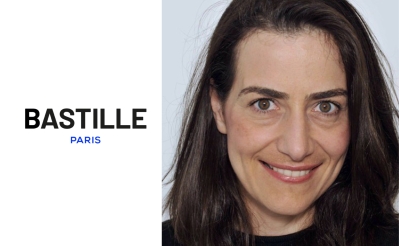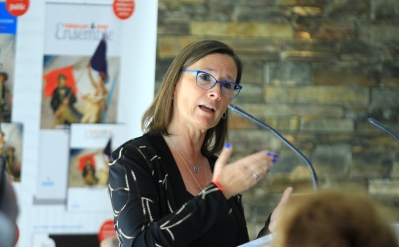News
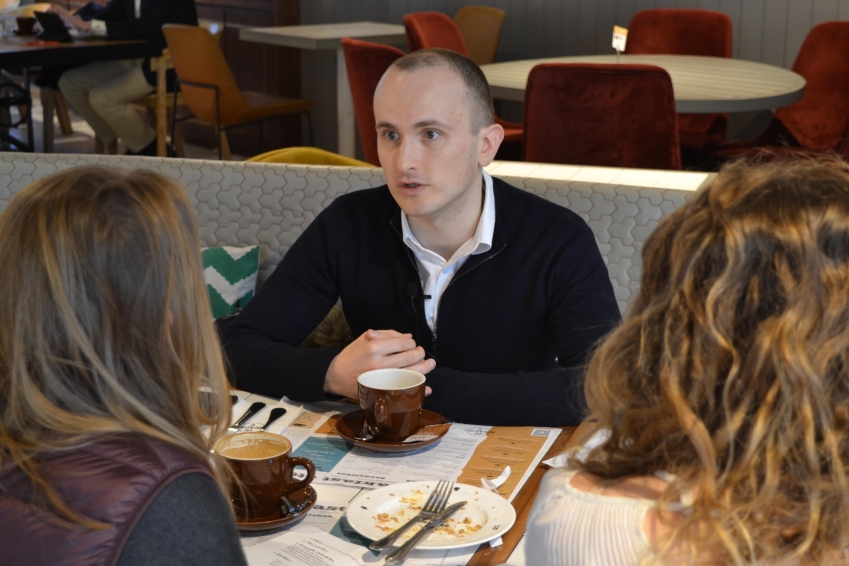
MEETING WITH VINCENT, KEDGE ALUMNUS AND HEAD OF THE ALUMNI CHAPTER IN SHANGHAI
Meeting with Vincent Le Magoariec who has been living in Shanghai for 3 years and who is Head of the KEDGE Alumni Chapter (KASH – Kedge Alumni in ShangHai). Vincent works for EURIS, he is in charge of Asian sales and is managing the China subsidiary. He talks about his choice to move to China.
Hello Vincent. First question, tell us about your education before and at KEDGE?
I started with an International Business license’s degree in Brittany and in Paris, during which I carried out a four-month internship in Tianjin, China, a city near Beijing. Then, I decided to stay for six more months at Nankai University in Tianjin to learn Chinese. My goal was to acquire basics of Mandarin Chinese - to know how to speak, read, and write - because I thought that it would be useful one day due to the rise of China.
After that, I join the KEDGE Grande Ecole program, and did my first year in Marseille. I did a 6-month exchange program at the “University of Southern Denmark”, located in Odense, Denmark. I carried out my final internship in France for EURIS. I have since continued working at EURIS. I started as an international sales engineer and after two and a half years, the company asked me to develop our activities in China.
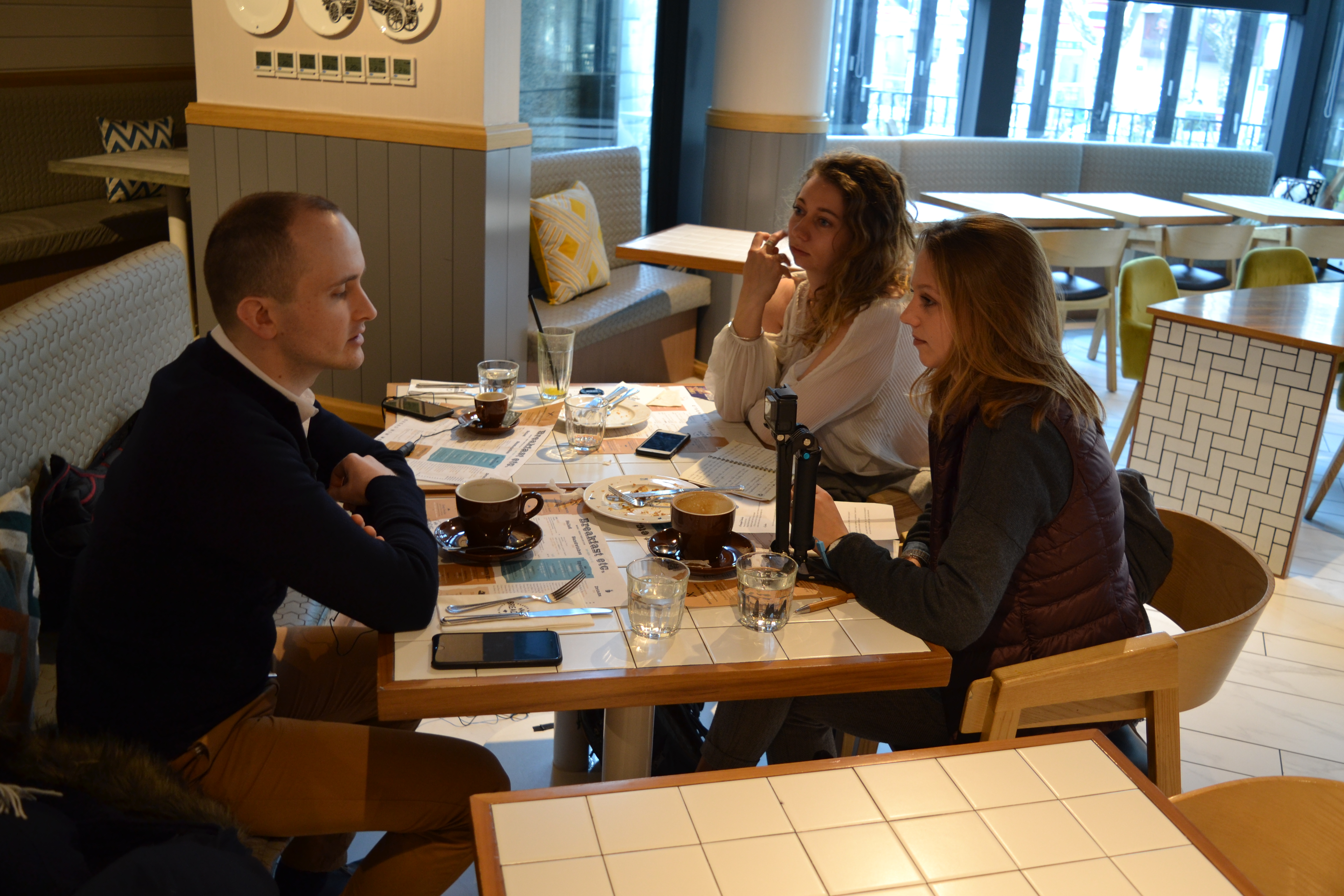
What does your actual job consist of? Specifically, what do you do on a daily basis?
I’m in charge of the Shanghai office. I supervise our activities and our development. I am also in charge sales development for the Asian markets.
My day to day work is to manage the office - both administration and staff - and to develop sales: meet our clients, make appointments with our prospective clients, present our products, make sales propositions, and sign contracts.
EURIS has two main activities. One is editing dedicated software for Life Sciences companies. We offer innovative Customer Relationship Management (CRM) and Closed-Loop Marketing (CLM) solutions used by medical / pharmaceutical representatives and their managers, which allow them to efficiently manage their daily activities and to be impactful. Our second activity is health data hosting. As a connected health operator, we support companies in hosting health data in compliance with local regulations. To do so, we have built an international technical infrastructure and have partnerships with connect health providers to answer our clients’ needs.

What is your company's CSR approach?
As a tech company, we tend to avoid using paper and to use low consuming devices.
Could you tell us about your decision to live abroad?
The idea came to me very early when I was 18. I wanted to go far away and see how was the world out there. I thought there were new things I could discover and learn in order to challenge my conception of the world.
I first found a 2-month internship in India. I think this experience changed my life and understanding of the world, and gave me the taste for being international. India is an incredible place. It’s often said that if one’s takes the Western World and turns it upside down, then it is India. There are colors, smells, heat… everything is so extreme. When you come back to your country, you bear the marks of such an experience. And either you tell yourself “the international life is not for me. I am fine living in my country”, or “It was great! When is my next travel?”.
That’s why, when the opportunity to carry out an internship in China came up during my international business license, I jumped at it. I have often heard that if you like China, you won’t like India, and vice-versa. On my side, I like China, and it’s not that I don’t like India – I love the people and the culture – but it’s not a country for me.
At the end of my year in China, where I met my wife, I told myself that I would return there one day for a longer period. Unfortunately, because of the local working regulations, it wasn’t possible until after I had my degree in hand and a 2-year working experience, so I had to wait a little longer.
What I like about expatriation is that you feel like a stranger - because of the language, the culture, the way things are done. You need to understand and accept this situation to adapt yourself. You also learn something new every day because you meet different people with a different education and culture. It opens your mind, and only living in a different country can provide you this experience. You can go to Chinatown to try, but it would not be the same (laughs).
1 minute / 1 kedger : Vincent, expat alumnus in ShanghaiPublished by Kedge Business School Alumni on Monday, April 16, 2018
What differences do you see between the work cultures in France and in China?
I attended a conference where a French entrepreneur in China compared the Chinese and the Japanese work cultures. I found that interesting. He said that in a project, in China, the project is done very quickly. Decisions are taken quickly, and everything also is done quickly. Once it’s finished, if it’s not perfect it will be redo until it is perfect. Therefore, they go very fast. Action is very important. At the end, the project is finished on time, and sometimes early. In Japan, 80% of the time is spent on thinking about all possibilities, and the remaining 20% is spent on action. It’s a very different approach but it also works well. France is probably closer to Japan, but with its own characteristics.
In China, it’s about responsiveness. Prompt replies are appreciated. If I take WeChat there is neither a private life nor a public life. The two are mixed. You are connected with clients as well as with your families and friends. Responsiveness means that at 11 pm, if you receive a message from a client, you answer it. Private life has a different definition, the end of a working day is not as strict as the one we have in France. You must be active, go fast, everything should move fast. You (the interviewers) have arrived this week in China, at the beginning of 2018, if you come back in two years, things will have changed a lot. For a business it’s the same. You have to be able to reevaluate your business roughly every year, while in France we review a strategy every 5 years. In China, new competitors arrive every year with a new technology, that might be adopted in a very short time.
What are your ambitions for the future? Do you see yourself still in China in five years?
China is an astonishing country moving fast, where a lot of things happen. Today, the greatest emerging economy in the world is China. We are in the Chinese century. Being in China is a bit like being part of 21st century history. We talk about it all the time: ecology, innovation, environmental measures. China moves fast, and more importantly, it has rediscovered its ability to innovate. China is the place to be. (laughs)
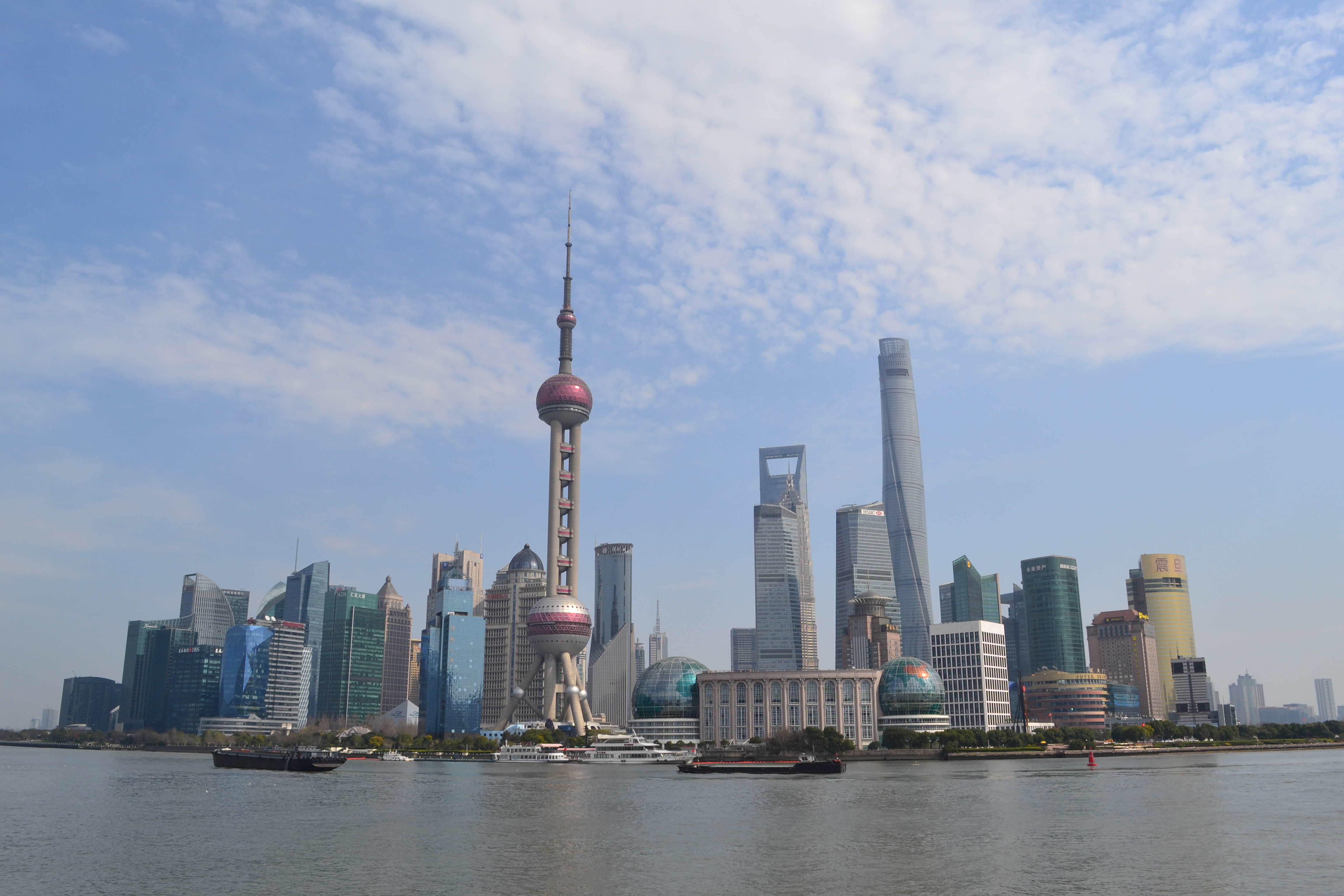
How has KEDGE helped you develop and accomplish your projects ?
I think what you are doing over these four months is a great asset of the school. “Pro-Act” projects and the international focus give students values. It allows students to understand the business world, to get involved, and to compare different point of view. You can find that in the school modo: "Create, Share, Care"
10 years ago, KEDGE offered Chinese classes and it was one of the only schools providing Chinese classes. That’s part of the reason why I chose KEDGE, with its campus in China, its large international presence, and quality of the courses which gives you the possibility to create your own path.
Most of the courses have helped me with something in my career. I think of entrepreneurship courses, or the international business courses with Valerie Angles (professor of International Business, Marseille campus, who speaks Mandarin).
I also appreciated the cultural mix of the school. I was close to the school’s Chinese diaspora. I’ve kept in touch with some of them who are now in Shanghai and are good friends. I’ve hosted the Chinese New Year Gala at school along with the three other Chinese speakers. It was a very good experience to be in front of a full amphitheater speaking about the Chinese New Year in English and Chinese.
If I had any advice to give to our students, it would be to take advantage as much as possible from the school and network while you are there. In the end, what is important is your network. I’ve tried to make my contribution in Shanghai with the Shanghai Kedge chapter by revitalizing it.
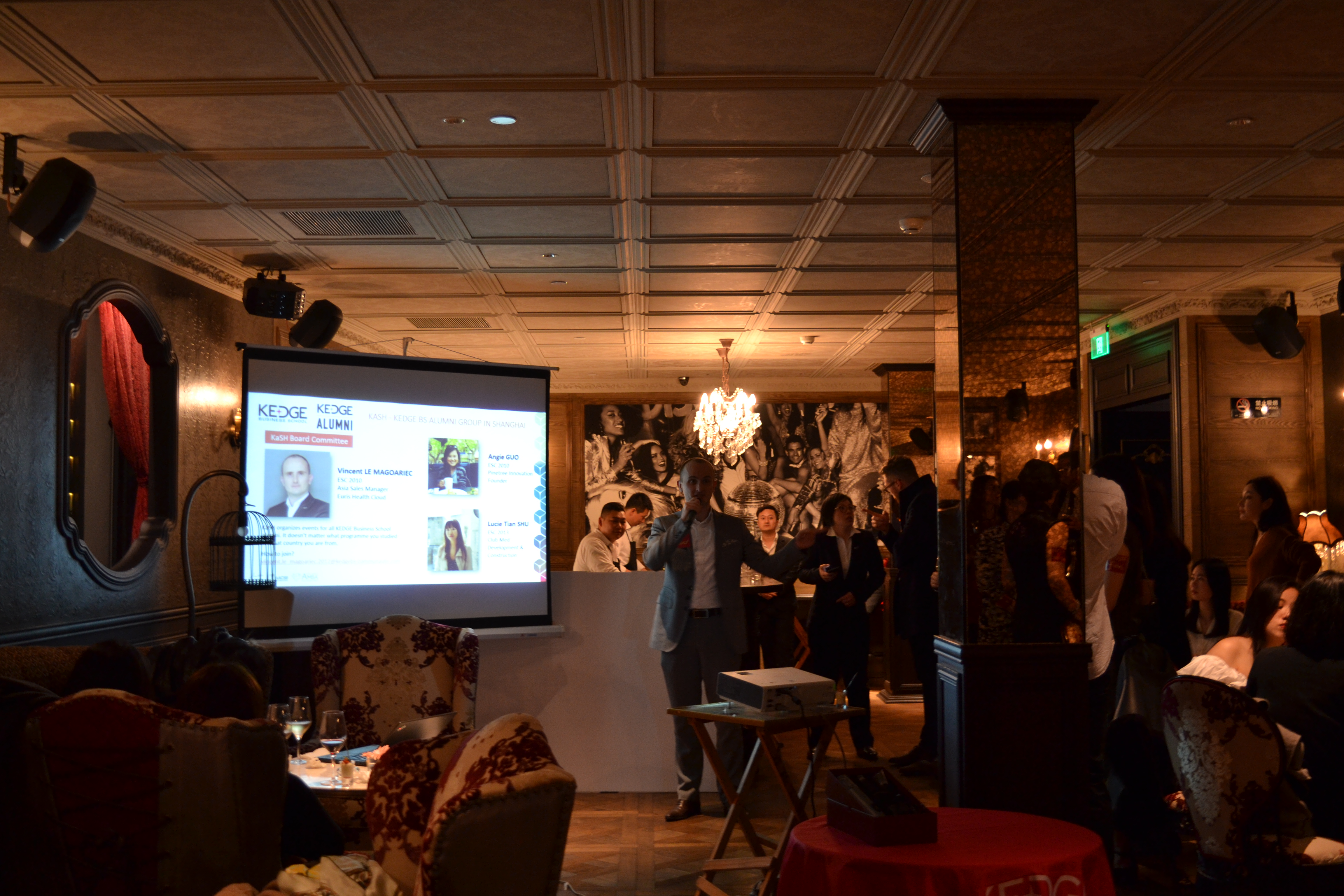
How is the position of the Head of the Alumni Chapter in Shanghai going?
When I arrived in Shanghai, the Alumni Chapter was inactive because the person in charge was about to leave for France. I contacted the school to find information about the chapter and its organization. I met with the person and decided to took over this role. I organized a first event, then a second one.
Since we are lucky enough to have a KEDGE office in Shanghai, Sabrina, Linglin, and the team, helped me for the following ones. Also, Lucie and Anqi, volunteers like me, joined the adventure. We share tasks which is useful when one is busy. Now we are 4 board members.
We try to hold events once every trimester, with the same format as those held on Wednesdays (Afterwork Shanghai Alumni). We find a nice venue, have breaking ice activities to facilitate interactions and exchange of business cards and WeChat contacts. I think it is important to have this type of events because China is a country of network. It is important for the visibility of the school also. We generally have between 30 and 50 attendees, mostly Chinese.
On a more personal note, what were your apprehensions before moving abroad?
None. There was no apprehension, only excitement.
What advice would you give students like us who are considering a move abroad, to China?
Come. We have a campus. It’s possible for foreigners to do internships in China. You need to know that. There is a program called “1,000 interns” which give foreign students the possibility to legally carry out an internship. My company is looking for interns, so if anyone is interested, don’t hesitate to contact me. Students from Suzhou can also do an internship because they are on a Chinese campus. Of course, there is a language and cultural barrier, but you can try. If there is a country or a region that you are passionate about or willing to discover, just go. You can do that when you are young. I did it and I have never regretted it. However, not everyone is made for living abroad, and there’s nothing wrong with that, but the best way to know is to try.
What has China given you that you would never have gotten in France?
I think the main thing that China taught me is a way to do things differently. We never really stop, we have to handle multiple things, we need to go fast. We don’t necessarily have this in France.
To be permanently networking, liaising, connecting two persons who you don’t necessarily know just because you see a potential opportunity between the two. This is unthinkable in France without first asking the person’s consent first.
Being an expat allows you to have a much larger network because we are all foreigners in China, so the community links are reinforced. The solidarity is stronger than it is in France.
Networking does not mean going to networking events every evening, but it means maintaining relationships, having a meal with your contacts, thinking of someone by sending them an article that they might interest them.
China brings this ability to go faster, that can be tiring sometimes. But if you don’t catch the train, you will stay at the station. Whether professionally or personally, you learn a lot in in China.
Interview conducted in Shanghai by the Kedge Asian Success team, consisting of Romane Clerc, Cyril Colliot, and Maud Ribaucourt.
MORE INFO ABOUT KAS AND THEIR NEXT DESTINATIONS
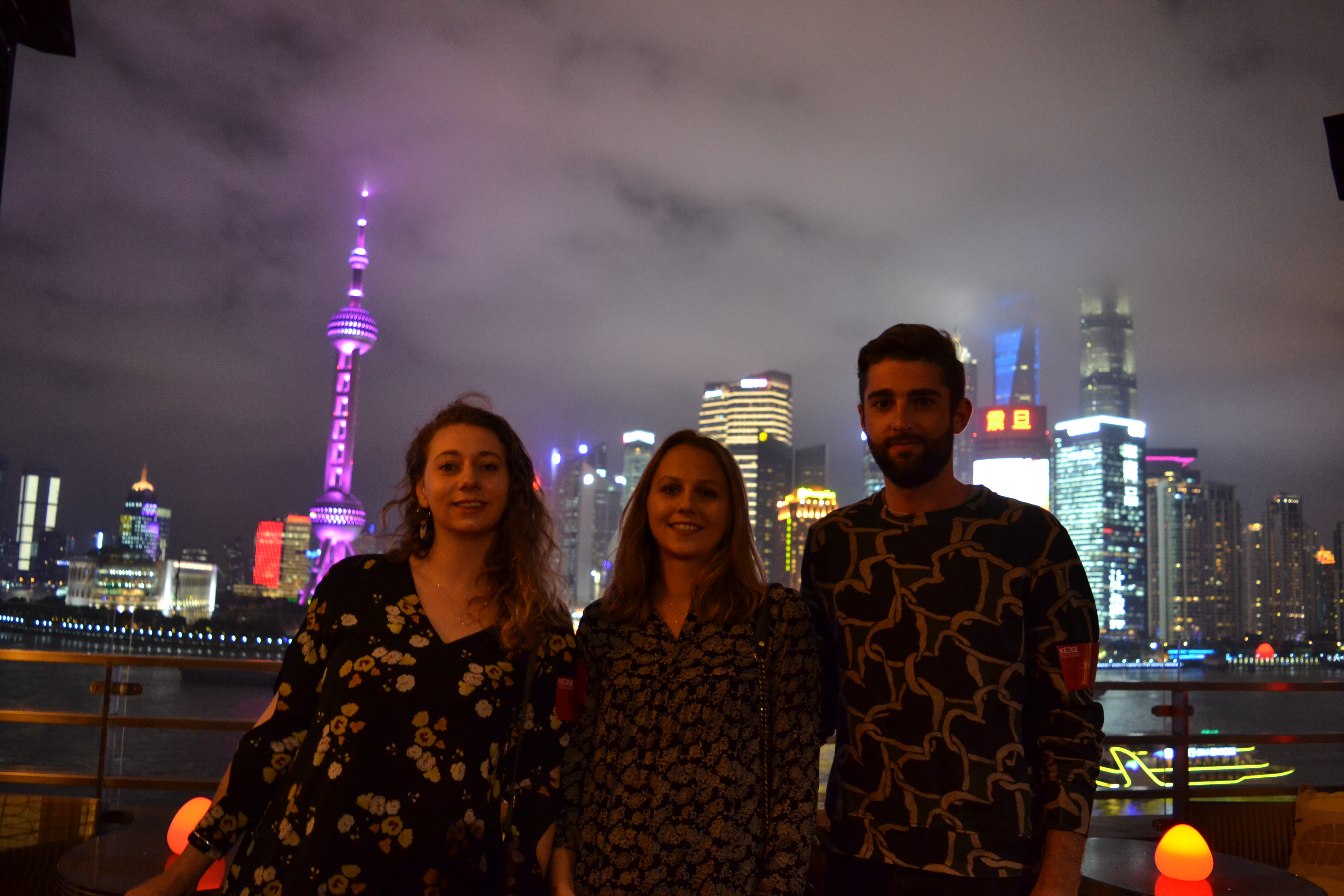
Romane, Maud and Cyril, creators of the KAS project.



